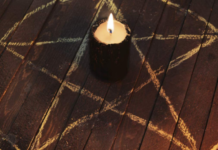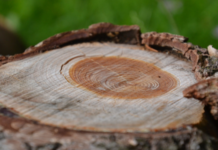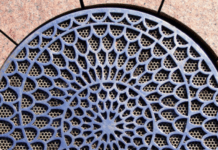 It seems easy to denounce the legions of white supremacists and neo-Nazis that have lately taken to setting up altars to the Old Gods, while spewing their hate filled messages and violence everywhere. Telling these people that they are not welcome in our spaces, in our circles, is something that most people wouldn’t have a problem doing. The hard part is dealing with racism that isn’t so overt.
It seems easy to denounce the legions of white supremacists and neo-Nazis that have lately taken to setting up altars to the Old Gods, while spewing their hate filled messages and violence everywhere. Telling these people that they are not welcome in our spaces, in our circles, is something that most people wouldn’t have a problem doing. The hard part is dealing with racism that isn’t so overt.
Despite ideals of universal love and power, we are human, and humans have biases that are programmed into us by the cultures we live in. Sometimes those biases are used to hurt people who we feel are unlike us in some way, and sometimes they come out in the form of casual (and not so casual) racism. Merely having these biases isn’t anyone’s fault, but refusing to acknowledge and move past them is.
With this in mind, people come into our spaces who harbour — perhaps unintentionally, perhaps not — racists thoughts, ideas, and attitudes, and it is up to use to challenge them and let them know that there is no space for that here. But first we have to understand what we’re looking at, and formulate actionable strategies for dealing with the problem when it comes up.
For ease of discussion, “Paganism” in this piece is being used as a catchall term to mean non-Abrahamic religions and practices. I am aware that term “Pagan” has been coopted by certain groups of white supremacists as a title used to directly refer to themselves and their sects. The fact that this has been allowed and some people have not spoken out directly against this is a major part of the problem. These people are controlling the narrative for all of us, and I am using the word Pagan, here, as a small step to reclaim the title from the path it has gone down.
I am also using the term “we,” because although I am a Black woman, I am from west, and must also be aware of appropriating Indigenous and Eastern traditions in my own practice.
Related: Canadian Pagans taking a stand against bigotry and intolerance, by Jade Pichette

The iceberg of racism
We need to talk openly about racism and how it manifests in spiritual communities. At the top, the part we see most clearly, are of course the white supremacists who have overtaken Asatru as well some Celtic belief systems. These are the most noticeable folx who are bringing racism into their practice. Their racism is easily identifiable, it is violent, it is vocal, and it is something that most people want to distance themselves from.
That’s just the tip of the issue though.
It is the culture of complacency that makes it seem ok that this exists beneath the surface in our communities. Spiritual communities have a lot to wrestle with when it comes to confronting the racism under their own roofs. Although people aren’t, generally, shouting “blood and soil” while lighting tiki torches at most Pagan gatherings, that doesn’t necessarily mean that the space is inclusive.
Often the kind of racism that we face in our circles is more causal, more at the level of microaggressions. It’s rampant cultural appropriation, the exclusive use of “white” to stand for goodness, and things of that nature, that create a space that is racist.
Casual racism and microaggressions are things that are small and usually spoken that have a harmful meaning to people of colour (POC). When a white person says, “you’re so articulate” to a Black person, for example, this is a microaggression. The speaker likely meant that the Black person was well spoken, but the unspoken part of that statement is “for a Black person,” because we live in a culture that treats and assumes Black people are less intelligent. Even if that wasn’t the intent of the statement, our culture fills in that empty space.
Our worship spaces are often very segregated, in which spaces that are predominantly white aren’t as inviting to people of colour. Because this issue isn’t addressed openly and directly, it continues to be a problem.
Rampant cultural appropriation makes people of colour, even those not directly from group that is being appropriated, feel very uncomfortable. Imagine what it would be like to see your own cultural and religious artifacts used improperly, or to be told that someone outside your culture feels that they know better that you how to practice something that is your birthright.
These issues reinforce white supremacist ideas that made it far easier for those outside the culture to swoop in and overtake those Pagan practices. The silence that surrounds the lack of confrontation of these issues does nothing to stop them. The Pagan community is long overdue to reckon with its problems with racism.
Related: Not your spirit animal: Cultural appropriation, misinformation, and the Internet, by Donyae Coles
Related: Cultural appropriation and tattoos, by Donyae Coles
Related: Reclamation after cultural appropriation, by Donyae Coles

The whitewashing of Paganism
One of the things that makes it very easy for white supremacy to flourish in Pagan communities is how overwhelmingly white it is. When people think of Paganism, the are put into the mind of Wicca, of Celtic aesthetic, lots of pale girls with dark clothes. This is part of the problem.
There are many, many beliefs under the umbrella of Paganism. It is not all European, it is not all, well, white. There are traditional African religions (more than just Egyptian), many Asian beliefs both modern and traditional, as well as Indigenous practices from all over the world. These aren’t just practices that people read about and study in history classes, many people keep their traditions alive through daily practice and ritual.
Which is to say, there are many living traditions outside of European Paganism that are being practiced today. This idea that Europe is the only flavour of Paganism out there really helps keep groups separated, and allows for the entry for these toxic and destructive individuals who wish to promote this conception of modern Paganism.
As such a focus is given to European practices, when other beliefs are introduced, they are often forced to mold to those ideals and cultures, instead of being allowed to stand on their own as representative of the cultures and communities that foster them.
They are changed to be made more palatable to white people, to match what they think a magical community and practice should be. This in turn demonizes those practices that do not conform to those ideas. For example, hoodoo, Vodou, and Palo have all been viewed negatively for their practices, some of which involve animal sacrifice or hexing (most of which does not), but at the same time, has been appropriated widely. Deities and spirits that have been borrowed from these practices and show up in the practices of white people, veves are seen as a witchy adornment, candle work, and spiritual baths that are often used by the same people who shun these practices in the context of the culture that they were created in for being “dark” or “left hand work.”
At the same time, there is no space made for these practices, and the people of colour who have worked with them for centuries, in the overall Pagan community, as more than just a novelty. That is, of course, unless it is filtered through a white person. This sort of setup mirrors colonialism, one of the major tools of white supremacy. As people in Pagan communities are so used to taking bits and piece of practices, no one questions it. Really, it helps to lay the groundwork for the entry of hard core racism.
We are creating, in our communities, situations in which we are devaluing and erasing the work and cultures of POC folx and when this collides with whiteness, it creates a colonial mindset in which they can say, “We have a right to everything, here is our proof,” which feeds directly into the idea of whiteness as being superior. It’s really no wonder why racists are attracted to Paganism when viewed through this lens.
Related: Black witch blues: The whiteness of magick spaces, by Donyae Coles
Related: Problems with whitewashing in worship, by Donyae Coles
Related: African pantheons: A primer, by Donyae Coles
Related: Chinese fortune telling, tarot, and divination, by Benebell Wen
Related: Working with multiple pantheons: A beginner’s guide, by Donyae Coles

Acknowledging racism
Before you confront and shut down racism, you must acknowledge how deep the problem is. It’s not just other people coming into the community — our bias lives within us, and it is incumbent on us to review ourselves for these biases.
These biases exists in our teachings, literature, and our leaders.1 We must examine these things critically in order to understand how and why something that can be so good is being coopted by people who are so morally bankrupt. It’s because the groundwork is already there.
We must review many of the teachings and works left behind by many of the leaders who have helped shape how we view and practice Paganism today. Many of the writers that continue to line magical bookshelves and are seen as go-to resources, such as Aleister Crowley, Scott Cunningham, and others, may not have been racist in the sense “I don’t like nonwhite people,” but their work does out right ignore or borrow quite heavily from the practices of people of colour, without acknowledging who and where that material came from.
We must also review who our new teachers are. In a more global age where cultures can be shared and explored more freely, we must question whether we are learning through authentic sources, or if we are gaining information through someone else’s bias and accepting it as a truth. When we have interest in the traditions of POC, are we approaching POC teachers, respectfully? Or are we counting on white people to do the heavy lifting for us?
What about our physical and digital communities? Are we making spaces where people of colour feel comfortable engaging? Are we respecting their different cultural backgrounds and how that informs their practice? Are we making space for them and their experience or just assuming that we’re all the same? How are we fostering communities that are diverse and inclusive?
If we cannot identify the issues in ourselves, in our practices, then we cannot be counted on to recognize and address these same issues when they happen outside of ourselves.
Related: Black witch resources: Getting started, by Donyae Coles
Related: Courtney Alexander on African American tarot and the importance of independence, by Donyae Coles
Related: Brandy Williams on gender, race, and classism, by Donyae Coles

Confronting racism
Addressing the racism in ourselves and teachings is one thing, but we must also address the racism in our communities. This means directly calling out people and practices that are racist or culturally insensitive. This is uncomfortable work, and even if you’re willing to do the work on yourself, the work of confronting your community is both easier to see but more difficult to encact.
It’s easier to see, because it’s outside of yourself, but it is more difficult, because you have to speak up in front of your community. This can be nerve-wracking, but it’s for the greater good of all.
Call outs don’t have to be big, extravagant things, and call ins are also effective tools in confronting people. A call in might involve taking the person aside and speaking to them privately, or sending a personal message. If the group is in-person, and there’s no time to step away, you can give them a call after the fact. These are more personal options that may be easier to navigate and feel less hostile to the person on the receiving end.
Something as simple as sending a note or taking someone to the side to explain how what they’ve said or done is offensive may help them learn and grow. Overt racism should be addressed (such as the use of racial slurs), but so should casual or unintentional racism. Make it clear that it’s not going to be tolerated, and that there is no place for it in your circles.
Get your leaders involved, make them aware of the issue if they are not already, and if they don’t move to action, question why not. You may find that your community is not interested in being nonracist, in which case, it’s better that you know that as soon as possible.
When new teachers are presented, ask or research where their knowledge is coming from, especially if it is a practice that originates from people of colour. Help break the chain of cultural appropriation by going directly to teachers of colour, and inviting them into your circles to share and teach what is appropriate.
What are the dynamics of your space? Do you have marginalized people as part of your group? Why not? Is the space inviting for them? Have you actively worked to make the space inviting for them by reaching out and inviting them in? We must make space if we want people to sit with us.
Finally, speak out against the rise of racism in Paganism. Instead of the, “That’s not us, that’s those people, our practice is fine,” approach, accept that these folx are part of the larger Pagan community, and thus their actions are reflective of the Pagan community, and ensure they don’t take over the narrative of Paganism.

Start today
You won’t solve the issues of racism in one day. You won’t change every mind in one day. But you can start today.
You can start with yourself, you can start with your closest communities.
It’s not important how many people you confront or how much you unpack, what is important is that you’re doing the work and you don’t stop doing the work.
Every little inch counts.
- Brandy Williams, “Resources to Study Racism in Esoteric Thought,” brandywilliamsauthor.com, 8 October 2017. [↩]








